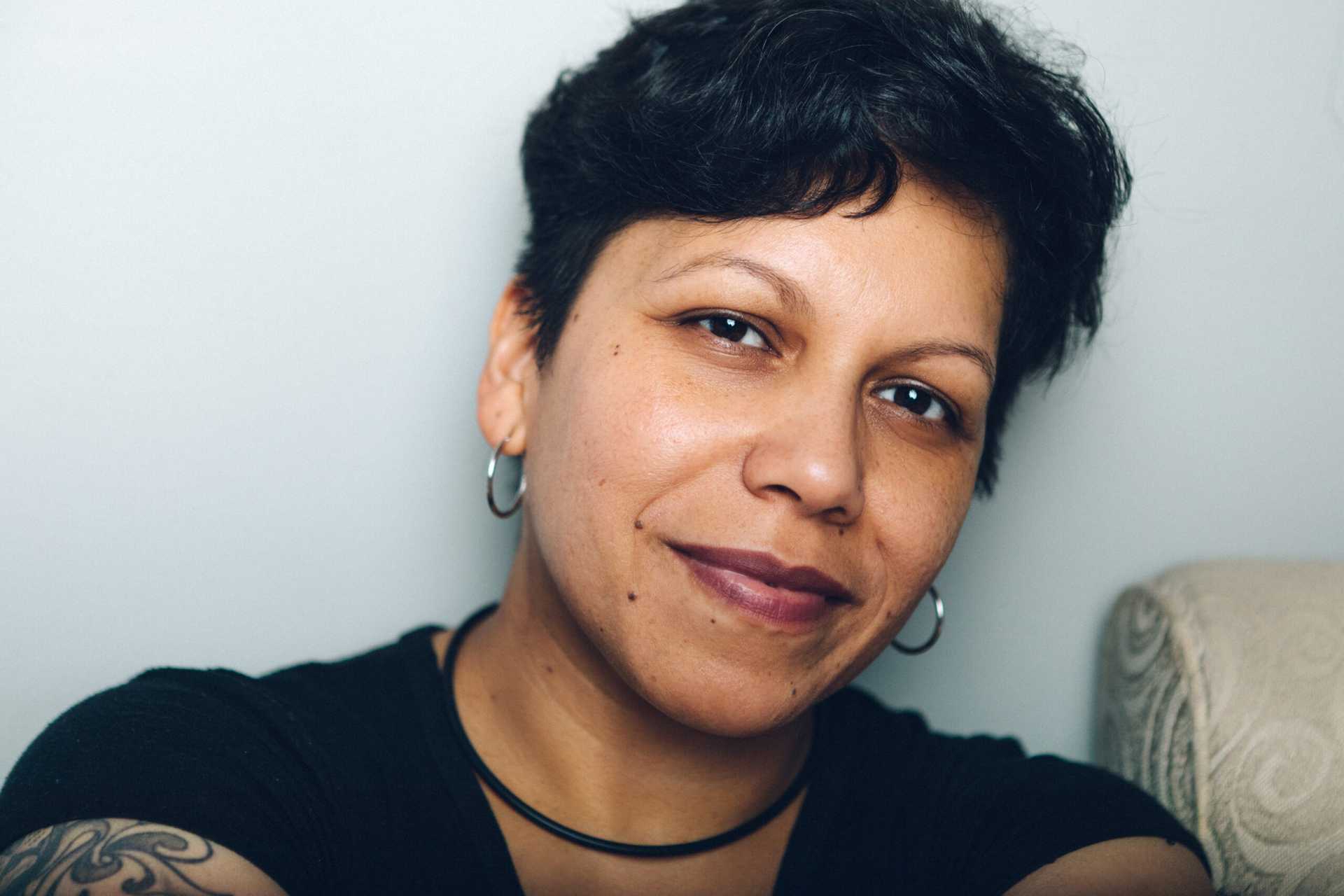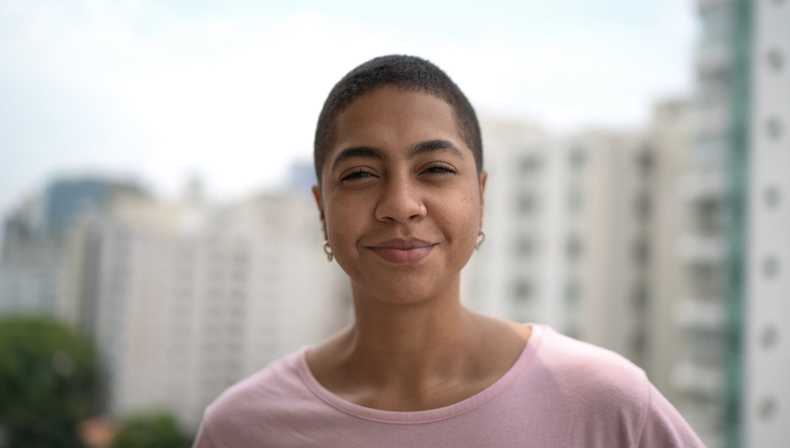For people of faith, professionals and other communities
Everyone has the right to treated equally and without discrimination. A person’s sexual orientation and gender identity do not need to be fixed; they are not broken. Change or suppression practices are not supported by medical research. There is no evidence that sexual orientation or gender identity can be changed or suppressed. Not only do these practices not work, but they are also deeply harmful.

Sexual orientation and gender identity
Someone’s sexual orientation is the inherent way that person experiences emotional, romantic, and sexual attraction to other people. This could be towards people of a different gender, the same gender, more than one gender or none.
Gender identity is different to sexual orientation. Gender identity is someone’s personal sense of being female, male, a blend of both or neither.
The physical features that someone was born with do not necessarily determine their gender or their sexual orientation.
There are lots of ways to describe sexual orientation and gender. The term LGBTQIA+ captures many of these.
Supporting and affirming someone’s sexual orientation or gender identity
The way someone describes their sexual orientation and gender is completely up to them. Everyone deserves to be surrounded by people who understand and support them.
If someone has confided in you, ask them how you can support them.
People without this support are more at risk of homelessness, economic instability, self-harm and suicide and substance abuse.
Watch our video explainer about the law
This 3-minute video explains that in Victoria, the law bans practices that try to change or hide someone’s sexuality or gender.
The law says that “all people, regardless of sexual orientation or gender identity, (should) feel welcome and valued… and are able to live authentically and with pride.”
We worked with Knuckles Animation Studio to deliver this impactful animation.
What are change or suppression practices?
It is against the law to try to change or suppress someone’s sexual orientation or gender identity, even if they ask for help.
To fall under the Change or Suppression (Conversion) Practices Prohibition Act 2021 (the Act) definition of a change or suppression practice, the conduct must include three elements.
It must be:
- directed at an individual
- because of their sexual orientation or gender identity
- undertaken with the intention to change or induce that person to change or suppress their sexual orientation or gender identity.
There is no evidence that sexual orientation or gender identity can be changed or suppressed
In the 1970s, the most widely recognised psychiatric guidelines, the American Diagnostic and Statistical Manual removed any reference to same-sex attraction as a condition that required diagnosis or treatment.
The Australian Psychological Society’s 2010 Ethical guidelines for psychological practice with lesbian, gay and bisexual clients and the American Psychological Association Taskforce’s 2009 Report of the Task Force on Appropriate Therapeutic Responses to Sexual Orientation ensure same-sex attractions, behaviours, and orientations are no longer regarded as disordered (in themselves) or requiring ongoing treatment by secular health authorities.
The Australian Psychological Association’s ‘Information sheet: APA recommends mental health practices that affirm transgender people’s experiences’ recognises there are no robust empirical findings that demonstrate any therapeutic success in directing transgender people to conform to the gender expected of the sex they were assigned at birth. By contrast, the information sheet reports a growing body of empirical research has demonstrated that affirming clinical responses can make a significant positive contribution to the mental health of transgender people.
The Sexual Orientation and Gender Identity Change Efforts (SOGICE) survivor statement outlines the history of the LGBTQA+ conversion movement, the various practices of the movement, the ideology that underpins almost all conversion practices, and the rationale for the recommendations of survivors.
Change and suppression practices cause harm
There is strong evidence in the Preventing Harm, Promoting Justice research report that these practices can lead to long-term mental health issues and in the most tragic of cases, suicide.
Survivors of practices speak about the ongoing harm and trauma caused by these experiences. Recovery can take many years. Survivors can suffer ongoing problems with mental health, relationships, sexuality and spirituality.
Survivors experience grief at the loss of relationships with family, friends, and communities who did not accept them as lesbian, gay, bisexual, transgender, asexual or gender diverse. They suffer financial impacts from:
- the costs of conversion practices
- recovery (such as therapy costs)
- loss of income from delayed or impaired education and employment.
Survivors also grieve the collateral damage experienced by family, friends and peers associated with their change and suppression efforts.
There is nothing wrong with being lesbian, gay, bisexual, transgender, asexual or gender diverse. Change and suppression practices delay people from being able to fully enjoy being who they are. When practices occur in faith communities, it makes it difficult for them to continue being people of faith.
How are people held responsible for conducting these practices?
All change or suppression practices are prohibited. All practices can be reported to the Commission and we will work with the reporter to determine the most appropriate response.
If someone engages in a change or suppression practice, they could:
- be involved in a facilitation process to reach an agreement between the people involved
- receive targeted education
- be subject to an investigation (for serious or systemic contraventions of the Act).
In some cases, engaging in a change or suppression practice is a criminal offence. It may be a criminal offence for a person to:
- engage in a change or suppression practice that causes injury or serious injury
- injury: physical injury or harm to mental health, whether temporary or permanent
- serious injury: an injury (including the cumulative effect of more than one injury) that endangers life or is substantial and protracted
- take a person outside Victoria for a change or suppression practice that causes injury
- advertise a change or suppression practice.
Elements of the offence would need to be established beyond a reasonable doubt, including:
- that the conduct was engaged in intentionally
- the severity of the injury
- the fact that the injury was caused by the change or suppression practice
- the person’s negligence (carelessness) as to whether engaging in the change or suppression practice would cause injury.
This means the evidence needs to show there is no other reasonable explanation.
The criminal offences are overseen by Victoria Police, though the Commission may also bring proceedings for the offence of advertising a change or suppression practice.
Anyone can report a change or suppression practice to the Commission. We can support victims of criminal offences to voluntarily report these to Victoria Police as required.
Reporting to Victoria Police could result in a criminal investigation and criminal charges.
In some circumstances, organisations or bodies may be held criminally responsible for change or suppression practices carried out by employees or officers.
What is allowed?
It is completely legal – and encouraged – to undertake activities that support or affirm someone’s sexual orientation or gender identity, including:
- providing acceptance, support or understanding of a person – or referring them to a person more suited to do this
- facilitating a person’s coping skills to be their authentic self, or explore or develop their identity
- facilitating social support for the individual
- assisting a person to express their gender identity
- assisting a person who is undergoing a gender transition
- assisting a person who is considering undergoing a gender transition.
To support affirmation, you can:
- centre the person in the conversation and decision-making
- listen rather than instruct or advise
- have an openness to them exploring their sexuality or gender identity without a view of where they land
- suggest affirming peer support or a support service (resources are listed further below on this page).
Peer support can come in the form of:
- a faith group that supports LGBTQA+ people practicing your faith
- support for people transitioning
- a group for parents who have a child who is LGBTQA+.
Medical and psychological treatment – in line with professional and ethical standards – that is necessary (in the health service provider’s reasonable professional judgement) is also allowed. This includes:
- providing a health service
- complying with the legal or professional obligations of the health service provider.
Continuing to practice faith
This law is not about stopping people from practising or enjoying their faith, it is about preventing harm – and these practices are harmful.
The Act does not prohibit prayer and religious practices, except when they amount to a change or suppression practice.
Your private prayer with your God can continue. You can continue to hold your own view on sexuality and gender.
Examples of activities that would not be prohibited include:
- a religious leader delivering a sermon which expresses a general statement of belief
- explaining a religious view of relationships.
These two activities may be considered a change and suppression practice if they are directed at a person for the purpose of changing or suppressing their sexual orientation or gender identity.
There are many ways you can continue to practice your faith without causing harm.
Think about the below situations: what you should avoid doing, and what you might do instead.
Support services and contacts
If you need further guidance around navigating conversations with LGBT members of your faith, the following communities and services can help.
Common questions for faith communities
Resources for faith communities
Providing safety for LGBTQA people of faith: A guide for the Baptist Union of Victoria
This guide is for faith leaders in Baptist Union of Victoria (BUV) churches – pastors, small group leaders, youth leaders, volunteer helpers and others. It helps Baptist Union of Victoria faith leaders understand Change or Suppression (Conversion) Practices Prohibition Act the how they can continue to work effectively while staying within the law.
Information in your language: Change or Suppression (Conversion) Practices Prohibition Act 2021
Talking about sexual orientation and gender identity can be complex for faith communities. But when people who are queer, trans or gender-diverse don’t feel supported by their faith communities, research tells us that they may experience significant harm. This fact sheet provides information about people’s rights and responsibilities under the Act. The fact sheet is available in English, Amharic, Arabic, Simplified Chinese, Traditional Chinese, Dinka, Farsi, Korean, Nuer, Oromo, Punjabi, Somali, Thai, Tigrinya, Urdu and Vietnamese.
Scope of responsibility
General question
Information on this page is intended as a guide only. It is not a substitute for legal advice.




